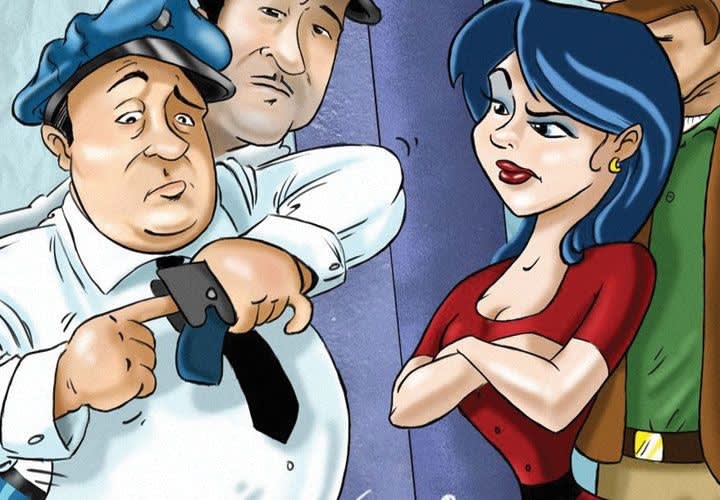Complex systems tend to oppose their own function! - John Gall
"I can touch your gun!" the TSA officer cried triumphantly looking up from the small gun case she held in her hand. "Yes, yes you can," my wife "The Sarge" said plainly. "But you can't pull it out without unlocking it."
The TSA lady had massaged, pulled, yanked, and twisted the small subcompact handgun case until she had distorted it enough to stick her finger in and make the seemingly all important "touch." The case had flexed but held its own and went back into full integrity once the trespassing digit was removed. "Well, it's not a real case then," the guardian of all flight safety declared with more than a slight edge.
"Well," I started, "we travel all over the country and never have this problem and it is a real case. Besides, we are about to lock it in her luggage and..." I was about to explain more completely when another TSA fellow said curtly, "We have a real gun theft problem here in Chicago!"
"I bet you do," said the Sarge, not the least bit of plainness in her voice anymore. "And why would a thief even bother to unlock a small case like that to begin with? He'd just take the whole thing," she tried to reason with the agents.
"That's why you need a real case so we can't touch the gun!" snarled the first agent.
I realized the Sarge was about to reenact the "Who's on First" skit with her playing the part of Abbot and the TSA playing Costello so I asked if it would be OK anyway? "Sure, I guess," one of them said, and we were off with our guns in our luggage all safely protected by locks that anyone with a TSA key can open anyway and apparently very poor security behind the "secure" area of baggage check-in.
I fully understand the problems and the ironies of bureaucracies. Having worked for both a large city and a statewide agency I know the nature and problems these systems create. It isn't a coincidence that the greatest stressor in law enforcement is not fear of death or anything associated with the great adventure of crime fighting. No, it's administrative stress that tends to really bother us.
We take high sensation-seeking folks like you and put you in a highly structured inflexible bureaucracy and are shocked when we discover that it stresses the heck out of you. The fact that the average law enforcement officer dies far younger than the average citizen is not hard to understand when we combine the stresses of shift work, poor diets, high divorce rates, the sedentary nature of the job, and the cold rigidity of the bureaucracy.
How often do we find ourselves in the situation above, playing the TSA part, the Costello part? "No ma'am, our policy doesn't allow us to..." I am sure you can fill in the rest of that sentence. The issue for us is how do we maintain our optimism and spirit working within a bureaucracy?
First, you've got to accept there is no other way to do the function of government. We are always going to have bureaucracies and sometimes we just have to put our heads down and keep going.
I don't mean in a helpless, "poor me" way, but with a warrior's stoicism. Oxymorons, Catch 22's, Mickey Mouse, all abound in every aspect of the government, from the military to maintenance, from the presidency to the mayor's office; we will always have someone trying to make the "touch!" We just have to chuckle and get our jobs done.
Finally, simply ask, "Why?" Not in a "what a bunch of BS" way, but a "Why do we do it that way?" way. That is what the Sarge did at the airport. Twenty-nine years of crime fighting made her want to get to the bottom of the "touch" phenomenon. She ended up with a group of supervisors going over the real TSA policy and left with a reassurance that a simple airport review of the policies and their real goals would be done.
And that is the real key for leaders of any bureaucracy: review and train. Without training a policy doesn't really count, but with training we can see if our policies still serve the goals of the agency...or if we are simply trying to "touch."
Dave Smith is the creator of "Buck Savage" and a retired law enforcement officer from Arizona. Currently, he is the lead instructor for Calibre Press' Street Survival seminar.













